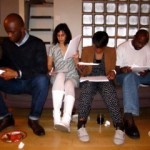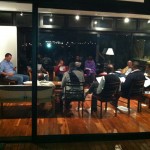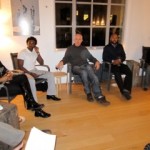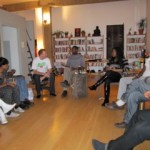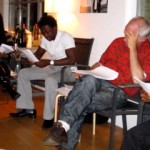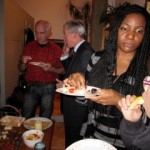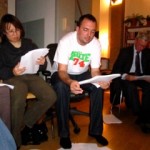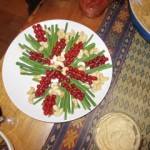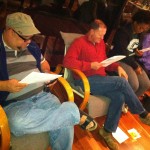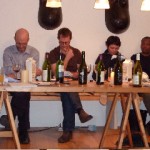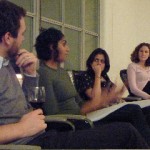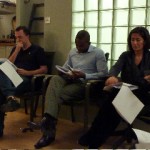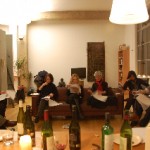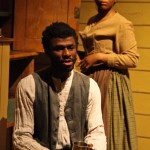“Rumble” Play Reading
Got through the “Rumble in the Jungle” play reading. It was an early second draft, but great to hear it aloud in a room. At events like this I’m reminded that theatre only really exists between us, and so amazing to hear it come alive. It was wonderful, painful, exhilarating, crushing, many things all at once. Back to writing, thanks to all who made it happen.
1 January 2012
Five Films that Changed my Life
I was talking with a dear friend the other day, who is back in town after a couple years, and we got to talking films, and I found myself telling her films she had to see. And then I realized the films I was naming were all really difficult pieces of work, and yet they are the films that have stuck with me. Something in the form of all these films is utterly different than what I had imagined possible and they changed how I think about film, and ultimately how I see the world. So here’s the list, and here’s to hard art that changes us.
#5: In the Mood for Love – for its sheer aesthetic beauty.
#4: Y Tu Mamá También – for the narration that tells a 2nd truth.
#3: Bamako – for the story that moves between the World Bank on trial, to women dyeing fabric, to men sitting in the street – all of the same importance.
#2: Uncle Boonmee Who Can Recall His Past Live – for the shifts from mythical to the mundane, all in a moment
#1: 35 Shots of Rum – for the beauty of relationship, and nothing else.
Play Reading Tonight
It’s been a year since I’ve done a large scale play/film reading at my house. Tonight is my “Rumble in the Jungle” play reading. Blessed to have friends and community to do this with. Here are the pics from last year.



